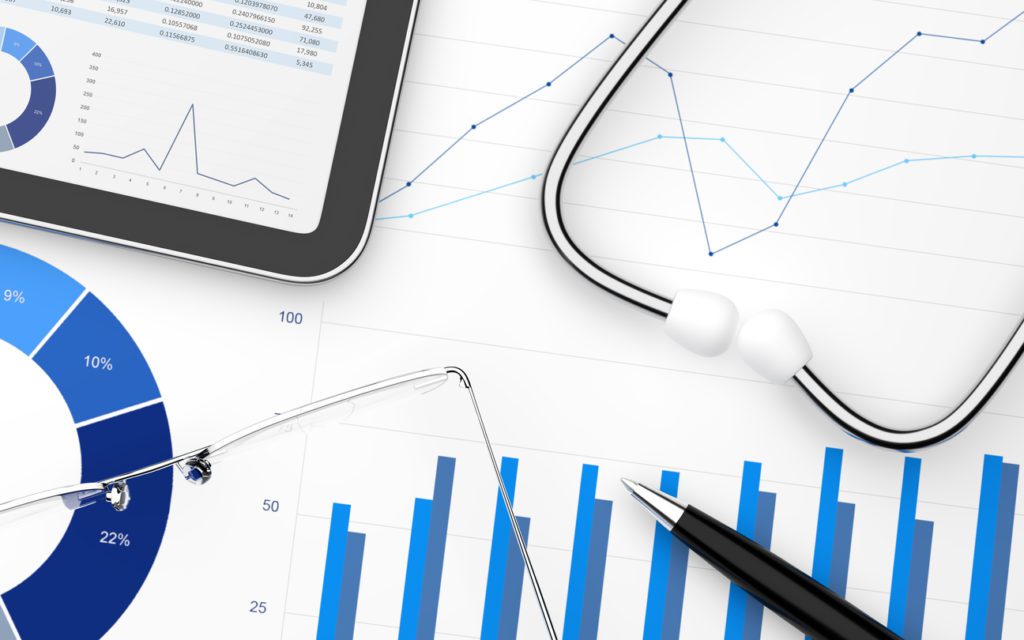While 2020 didn’t birth new trends, it hastened existing ones and emphasized the need for digital, connected health. Consequently, healthcare leaders face many challenges and opportunities, from telehealth transformation to information security concerns.
The Healthcare Information and Management Systems Society (HIMSS) conference will cover these topics and more. Explore trends that are transforming how administrators, providers, and patients view healthcare.
| Learn how Cox Business solutions can help your healthcare organization prepare for the future. Learn More |
1. Smart Hospitals: Connectivity Adds Business Value
Although many health facilities incorporate digital systems, few have genuinely “smart” hospitals. Yet, Accenture Digital Health Technology Vision 2021 finds, “92% of healthcare executives believe that their organization’s ability to generate business value will increasingly be based on the limitations and opportunities of their technology architecture.”
Additionally, “73% say that their technology architecture is becoming critical to the overall success of their organization.” The smart hospital framework — data, insight, and access — support operations, patient centricity, and clinical tasks. The journey to becoming “smart” starts with digital solutions and evolves to fully align management systems and clinical processes.
Discover how to build a facility or smart patient rooms with integrated technologies during the HIMSS “Smart Tech to Smart Care: Impacting Satisfaction and Communication while Improving Outcomes” program.
2. Real-time Location Services (RTLS) Go Mainstream
Real-time Location Services use the Internet of Things (IoT) to monitor and track environments, assets, and people. In return, healthcare organizations improve operational efficiency, patient and staff safety, and clinical flows.
RTLS solutions include:
- Asset tracking: Reduce time spent searching for equipment and provide staff with status updates using RTLS IoT solutions.
- Patient flow: Improve patient experiences by offering updates on patient wait times and status via a user-friendly dashboard.
- Wayfinding: Help hospital visitors, traveling nurses, and new staff members find their designated location without flagging down healthcare employees.
View RTLS healthcare technology solutions through virtual or physical exhibits at HIMSS 2021.
[Cox Prosight is an IoT enabled solution from Cox Communications designed to help hospitals improve operational efficiency, staff safety, clinical workflows and patient engagement. This powerful solution furthers Cox’s commitment to reinventing the health care journey to a more personalized, frictionless and overall better patient experience.| To learn more about Cox Prosight, visit us at Booth #6036, during the HIMSS21 Conference or online at https://www.coxprosight.com Learn more |
3. A Push to Integrate Telehealth Solutions
Telehealth and virtual care solutions will continue to be in demand post-pandemic. In July 2021, McKinsey & Company noted that “telehealth utilization has stabilized at levels 38 times higher than before the pandemic.” However, leaders must now move towards “truly blended care,” according to a HIMSS Healthcare Investing Trends Report.
Telemedicine platforms should:
- Give providers access to clinical decisions support
- Use artificial intelligence (AI) for triage tools and chatbots
- Connect to remote patient monitoring devices
- Integrate with in-person care and referral processes
HIMSS 2021 has several telehealth subjects on the schedule, including the hybrid care delivery model and omnichannel virtual assistants.
| To learn about how telehealth solutions from Cox Business and Trapollo can help your business, visit us at Booth #6236, during the HIMSS21 Conference or online at https://www.trapollo.com Learn more |
4. Remote Patient Monitoring (RPM) Supports Patients and Providers
Investments in remote monitoring companies doubled between 2019 and 2020, from $417 million to $941 million, highlighting the shift from a trend to the mainstream. As more private payers reimburse healthcare systems for monitoring chronic disease and virtual care solutions incorporate remote devices, RPM will mature.
Consequently, clinicians and patients benefit from workflows with integrated patient-generated data. Tracking biomarkers virtually and continuously help clinicians intervene quickly, resulting in cost reductions and better patient outcomes.
If you’re headed to HIMSS 2021, check out “Best Practices to Improve your RPM Program.”
5. Behavioral Health Tech Is Here to Stay
According to KFF, “during the pandemic, about four in 10 adults in the U.S. have reported symptoms of anxiety or depressive disorder. This is a sharp uptick from the “one in 10 adults who reported these symptoms from January to June 2019.”
Fortunately, behavioral health technology helps combat the steep increase in mental health concerns and challenges associated with access and stigma. Patients and providers are searching for behavioral or telemental solutions, and, increasingly, employers are doing the same.
A Tridiuum survey finds, 70% of behavioral health providers “plan to continue offering telehealth services post-pandemic.” Moreover, McKinsey & Company reports that telehealth claims for psychiatry and substance use treatment outpace other services.
Get practical tips for “integrating digital health tools into clinical practice” during the “Exploring MHS Digital Health Tools for Self-Care” or the “Next Generation Mental Health” sessions at HIMSS.
6. Cybersecurity: Protecting Patient and Healthcare Data
Protecting hospital information systems and thousands of IoT devices is a top concern. As of May 2021, the HIPAA Journal says, “34.4 million healthcare records have now been breached in the past 12 months, 11.2 million of which were breached in 2021.”
While using cybersecurity best practices is vital, employee and patient education also plays a significant role. Therefore, healthcare organizations must involve patients, clinicians, and healthcare workers in cybersecurity efforts.
Indeed, the HIMSS Cybersecurity Health Forum will be popular at this year’s conference. Educational topics include medical device security and third-party risk mitigation, among others.
7. Forward-Facing IoT and Healthcare Wearables
IoT and healthcare wearables go hand-in-hand with remote monitoring and telehealth. HIMSS says, “more than 50% of providers found wearable technology in healthcare helpful in monitoring their patients.”
There’s a market for consumer-facing wearables and those designed for specific patient populations and illnesses. Connected care and remote diagnostic platforms create digital signatures for patients and allow providers to personalize caregiving.
From clinical-grade nanosensors in clothing to wristbands, healthcare wearables empower patients to control their health while giving clinicians critical insights into patient health and behavior.
Head over to “Smart Wearables and AI: The Next Frontier in Healthcare Innovation” at HIMSS to learn how this trend affects healthcare systems and consumers.
8. A Move Towards Data-Based Whole-Person Healthcare
Consumers expect patient experiences, in-person and virtually, to reflect typical retail transactions: accessible and seamless. Moreover, integrated healthcare models should engage patients in their wellbeing and include social and behavioral determinants of health.
Patient engagement tools and integrated systems help patients navigate healthcare. Furthermore, investments in multi-party partnerships and interoperability are essential. Accenture reports that “investment in creating industry data interoperability could result in administrative cost savings of $30 billion.”
Learn how to build consumer-centric patient experiences by attending the HIMSS “Opening the Digital Front Door to Improve Patient Intake Experience” program.
Lead Your Healthcare System Into the Future
Digitalizing and humanizing the patient experience isn’t just a trend — It’s in demand now. Although healthcare organizations face unique challenges, solutions via technology and data exist. Going forward, the real hurdle is how to balance existing services and technologies while designing sustainable, patient-centric futures.
Cox Business provides technology solutions to the healthcare industry that help achieve the added reliability, scalability and redundancy crucial to healthcare.
Explore Healthcare IT Solutions from Cox Business
Visit us at Booth #6236, during the HIMSS21 Conference, or online at https://www.cox.com/business/enterprise/healthcare.html


![Top 5 Reasons To Review Your Business ISP [Infographic]](https://www.coxblue.com/wp-content/uploads/2013/10/isp_review.jpg)
